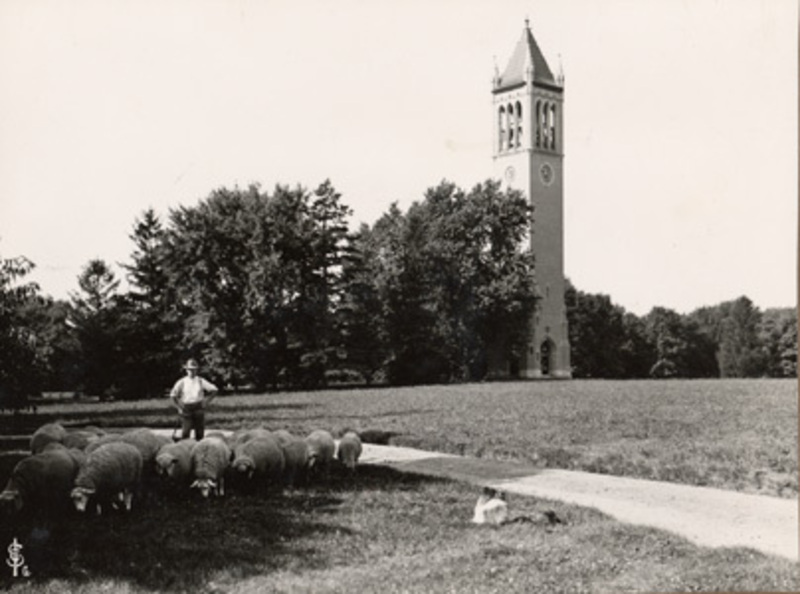Overview
Iowa Agricultural College and Model Farm (now Iowa State University) was officially established on March 22, 1858, by the legislature of the State of Iowa. Story County was selected as a site on June 21, 1859, and the original farm of 648 acres was purchased for a cost of $5,379. The Farm House, the first building on the Iowa State campus, was completed in 1861, and in 1862, the Iowa legislature voted to accept the provision of the Morrill Act, which was awarded to the agricultural college in 1864. Iowa Agricultural College (Iowa State College of Agricultural and Mechanic Arts as of 1898), as a land grant institution, focused on the ideals that higher education should be accessible to all and that the university should teach liberal and practical subjects. These ideals are integral to the land-grant university.
The first official class entered at Ames in 1869, and the first class (24 men and 2 women) graduated in 1872. Iowa State was and is a leader in agriculture, engineering, extension, home economics, and created the nation’s first state veterinary medicine school in 1879.
In 1959, the college was officially renamed Iowa State University of Science and Technology. The focus on technology has led directly to many research patents and inventions including the first binary computer (the ABC), Maytag blue cheese, the round hay baler, and many more.
Beginning with a small number of students and Old Main, Iowa State University now has approximately 27,000 students and over 100 buildings with world class programs in agriculture, technology, science, and art.
Iowa State University is a very special place, full of history. But what truly makes it unique is a rare combination of campus beauty, the opportunity to be a part of the land-grant experiment, and to create a progressive and inventive spirit that we call the Cyclone experience. Appreciate what we have here, for it is indeed, one of a kind.
By Tanya Zanish-Belcher (Associate Professor, ISU Library)
In Their Own Words…
To celebrate Iowa State’s Sesquicentennial in 2007-2008, the University Archives has undertaken an oral history project to collect as many Cyclone stories as possible. This includes student, faculty, staff, alumni, and anyone else with an Iowa State connection. So, check out the past, and tell us your story for the future!
- Listing of completed interviews
- Send us a special story or memory for the Sesquicentennial (archives@iastate.edu)
Archives
Iowa State Sesquicentennial: History of Iowa State URL (2007)
Original Sesquicentennial Celebration URL (2013)
This is a historic exhibit and the information provided within it may be out of date. Please contact the Special Collections and University Archives Department with questions about Iowa State history (archives@iastate.edu).
